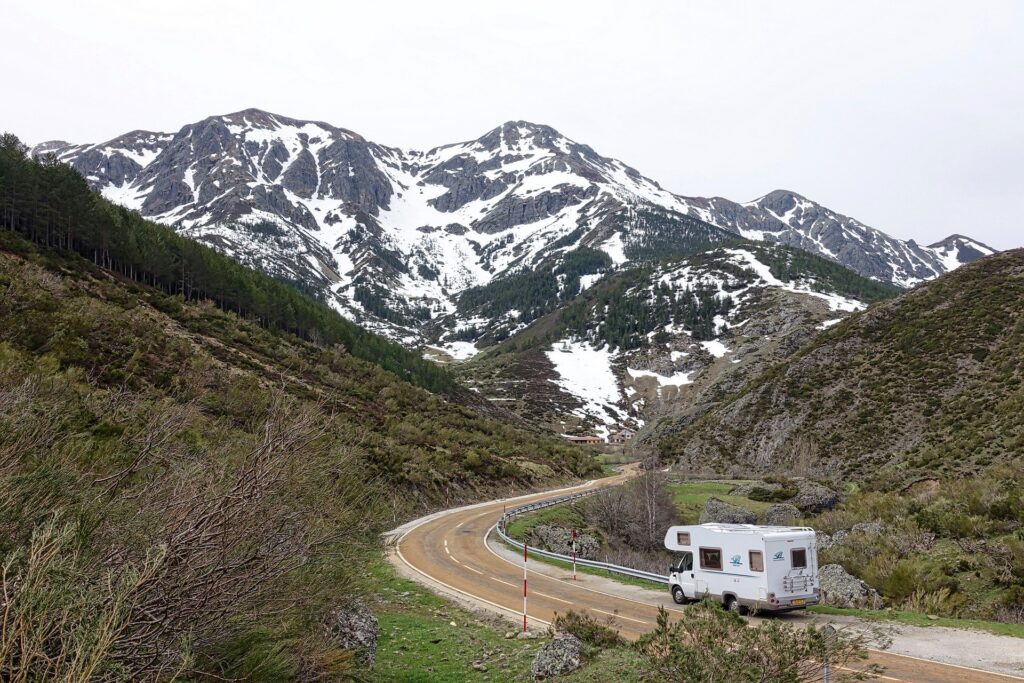
In September 2020, we sat down with Courtney Wooge, President of FCIS and RV Advantage, to talk about RV insurance. As an insurance brokerage, Courtney and the team at FCIS work with a variety of carriers and have the unique advantage of being able to compare policies and learn how different insurance companies handle common and uncommon concerns for RVers.
This can be a daunting topic, especially if you’re new to RVing, so we were grateful to pick his brain and come away with lots of great advice! While our live broadcast was about an hour long, our conversation can be distilled down to seven key pain points many RVers run into when finding the best coverage for their adventures. Courtney and his team have worked with Escapees to ensure the information contained in this article is current as of February 2022. Some advice written here may differ from what is shared in the recorded webinar. Written information is most current.
1. Insurance for Part-time vs Full-time RVers
A big mistake new RVers make is presuming they can just add RV coverage to their current automotive policy and hit the road! While doing this will cover you to an extent, it may not be enough if you plan to spend lots of time in your RV.
Insurance companies sort RVers into a couple of different categories, most of which are based on presumed liability needs. There are part timers who only use their RV occasionally. However, you are considered a full-timer if you spend more than 150 nights in your RV each year. That is further broken down:
- Those who own a home (“sticks-and-bricks”) but also spend 150+ nights in their RV each year, returning to their home between RV trips,
- and those who don’t own a “sticks-and-bricks and spend closer to 365 nights in their RV each year.
The key difference between these two categories is how much time your insurance carrier anticipates you will be on the road in your RV, and therefore exposed to more risk. Understandably, an RVer who no longer has a permanent address and spends the vast majority of the calendar year traveling around the U.S. is at a higher risk for collision and other liability occurrences. More liability typically also means higher insurance rates.
That said, although it is tempting to get creative in your answers in order to save money on your premiums, be careful. If you do find yourself needing to file an insurance claim, you will want the peace of mind that comes from knowing you’ve purchased the right policy for your needs. If you’ve misled your carrier to believe you use your RV less than you actually do, and the adjustor has reason to believe you’ve misrepresented yourself, your claim may not be covered at all.
2. The Difference Between Actual Cash Value, Replacement Value, & Agreed Value
While it’s required in most, if not all, states to carry liability insurance, you want to make sure your cover yourself, too, in case you have a major loss. This is where things can get a little tricky.
When you buy a brand new unit, or you’re the original owner of one that is the current or previous model year, you can get replacement value coverage. This means if you have a total loss on your RV within the first five model years, the insurance carrier will purchase a new similar RV for you. These must be similar to the make and model of the RV you lost. The intention here is to make you whole and get you back to enjoying your RV. In some cases, you may get an even better rig because you’re getting a brand-new RV. How does this happen? As we all know, when we buy a brand-new RV, we know it’s going to depreciate pretty quickly. Replacement value coverage helps offset that depreciation with respect to having an insurance loss.
If your RV doesn’t qualify for replacement value coverage, there are still options for you! Outside this window, you have the option of “actual cash value” coverage. What does this mean? As an example, let’s say you purchased your brand-new RV in 2008 for $75,000. In 2015, you experience a blowout on the interstate that leads to a terrible accident and your RV is a total loss. If you have actual cash value coverage, your insurance company will offer a reimbursement of the current cash value of your RV. While this may not afford you a brand new RV to replace what you lost, it does give you something. Again, actual cash value coverage only pays out what your RV is worth at the time of loss.
Let’s say your RV is older, or even a vintage one that’s been professionally restored, what do you do then? This is where agreed value comes in! The term “agreed value” refers to you and your insurance provider coming to an agreement on the value of your RV should it be a total loss.
To obtain agreed value coverage, you’ll need to discuss your options with your insurance provider. Typically, a third-party valuation is sufficient to establish an agreed value, but your provider may have additional criteria. “Third-party” can refer to the bill of sale from the dealership or seller, or to an independent, professional appraisal. Not all providers of RV insurance will issue an agreed value policy, so ensure that yours will before you go through the time and cost of an appraisal.
3. Speaking of Self-Built RVs…
In previous versions of this article (and even in the original webinar shared below), we shared how thorough documentation of the remodeling/self-building process is a huge help to insuring your RV. Unfortunately, that has changed.
Due to a number of factors, carriers have been declining many of the self-built RVs/RV conversions in recent years. Even thorough documentation isn’t always enough to inspire confidence in the durability and longevity of DIY work.
Insurance carriers do allow for professional conversions and remodels, though. For example, as the pandemic stretched on and people were simultaneously looking for employment while others were looking for RVs and safe ways to vacation, a market opened for Class B van upfitters. These are companies that take Class B cargo vans or RVs and remodel or rebuild them into contemporary RVs that meet the demands of modern nomads. As long as these remodels and rebuilds are done professionally, they are more likely to be easy to insure. Plus, having the work done by licensed professionals gives the carrier a company to turn to if an incident occurs due to faulty work.
Warning to those wanting to build their own “skoolie:” As of summer 2020, several insurance companies have ceased writing policies for converted school buses. The primary reason for this is that they are large, heavy, powerful vehicles that can cause a lot of damage. With so many decommissioned school buses coming back on the roads as RVs, the number of insurance claims have increased and driven up the cost to insurance companies. Insurance brokers like FCIS are working to find a compromise with these companies, but for now, your options for insurance will be limited. Those working with Silver Eagle and Prevost buses, which are designed for an RV chassis, don’t typically run into this same concern.
4. Why You Need Personal Contents Coverage

Another reason to look beyond adding an RV to your auto insurance policy is the need for personal contents coverage. The personal belongings we keep in our cars are vastly different from the things we keep in our RVs. For example, picture a big crane picking up your car, turning it upside down, and shaking it. What kinds of things would fall out? Probably some paperwork, maybe a few grocery bags, loose change, that lip balm you thought you lost ages ago, and probably some random bits of food. What if someone flipped your RV over and shook it? You’ll see small appliances, clothes, electronics, jewelry, important documents, beloved mementos, and much more. If these kinds of things were to go missing from your car, your homeowner’s insurance policy would kick in and help replace them. What if you don’t have homeowner’s insurance anymore?
RV policies can add up to $99,000 in personal contents coverage, covering you in case you suffer a loss of your belongings. Like a homeowner’s policy, with personal contents coverage you can even ‘schedule’ your belongings, assigning individual value to important things like expensive jewelry, electronics, even outdoor gear like kayaks! Doing this locks in its value if it’s stolen or you have a loss on your RV.
If you go the route of scheduling your things, help your agent and your future self by documenting your scheduled items with photos and receipts, if you still have them. In the event of a claim, your insurance agent can share this information with the claims adjuster to expedite the process and ensure you get fair compensation for your items.
5. Loss of Use/ Emergency Expense Coverage- What if Your RV is Totaled?
You’ve made sure your liability coverage is right for the amount you use your RV. You’ve ensured your belongings are covered in case you experience a total loss. What happens to you if your RV is uninhabitable and you’re nowhere near home or a loved one you can visit? This is where loss of use coverage comes in.
Regardless of how much you use your RV, loss of use coverage is worth your consideration. Whether you’re on a family trip to the national park 8 hours away or you sold everything to hit the road full-time, accidents happen and you may find yourself in a situation where you need somewhere to stay for at least a night or two while your insurance provider and claims adjuster figure out what to do with your damaged RV. Part-timers can eventually return to their sticks-and-bricks homes, but may need somewhere to stay during that trip home. Full-time RVers are in an even stickier situation, especially if significant repairs are needed or if your RV has been totaled. Loss of use coverage helps you pay for temporary housing and other unplanned expenses while you wait to either return to your now-repaired RV or to purchase your replacement rig. The details of your individual plan should include specifics such as how many days/nights of lodging are covered, whether a rental car is included, and other covered expenses.
6. The Difference Between Tow and Toad Vehicles
Speaking of rental cars… let’s talk about the automobiles we often use alongside our RVs. For those unfamiliar with RV lingo, “toad” refers to the vehicle that is towed behind your RV. You most often see these with motorhomes. Tow vehicles are what you use to pull, or tow, your travel trailer.
What happens if you’re in an accident while towing your car behind your motorhome? This is a bit of a sticky situation, though it can be made easier by ensuring your motorhome and auto have independent policies. If you are at fault in an accident involving both your motorhome and your toad, your motorhome’s liability policy would cover the damage caused by both vehicles. However, your motorhome’s coverage may not extend to the damage sustained by your car. This is where you’ll want a separate collision policy on your car.
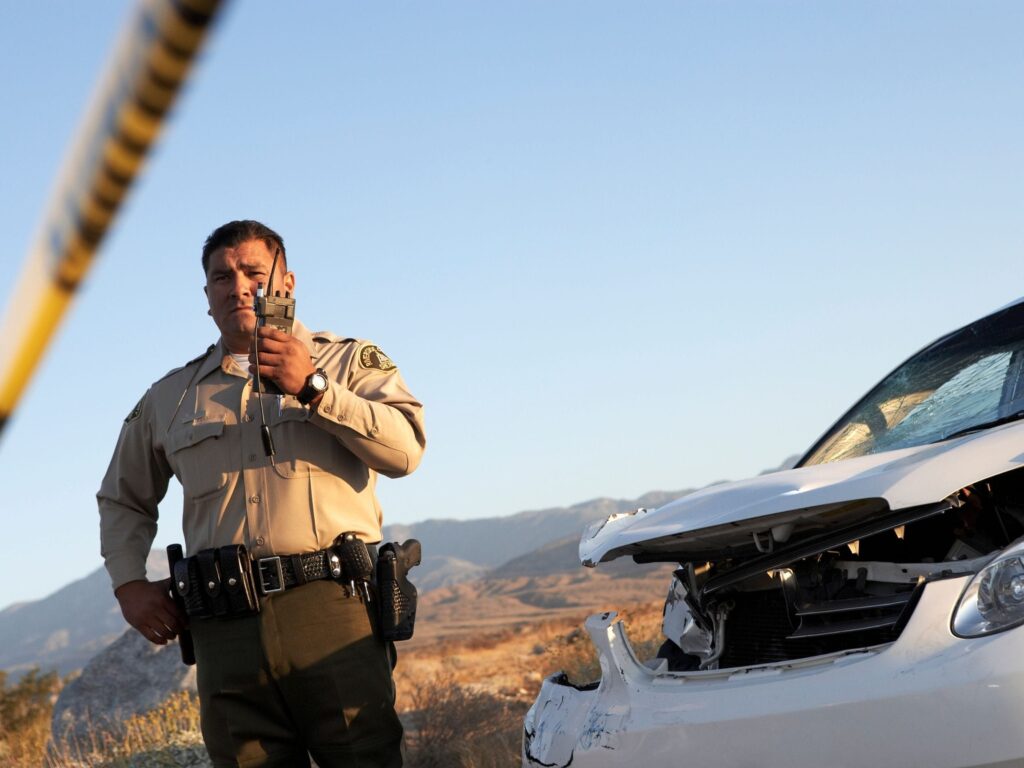
What about your tow vehicle and travel trailer? The same concept applies even though the purpose of the vehicles is the inverse. If you are involved in an accident while towing your RV with your truck, your truck’s liability policy would cover damage caused by both or either. However, once you disconnect the two, your truck’s insurance no longer covers your RV. If your awning breaks and hurts your visiting neighbor, or if you’re on BLM land and a tree falls on your RV, your RV’s insurance policy will address those concerns. Your tow vehicle’s policy will not. It may help to think of your RV insurance policy as being similar to a homeowner’s insurance policy.
7. Where Do I Insure My RV? "Garaging Address" Explained
What was once an easy question has grown more complex as insurance catches up to today’s technology. At one point in time, your home address was all you needed to provide to your insurance company to determine your rates. This approach is going away.
When your policy goes to underwriting, the insurance company is going to ask where your RV stays when you aren’t using it. If you’ve got a teardrop trailer tucked into your shed in the backyard, then you’ve got an easy answer. However, if you have a seasonal site at a campground a few counties over, or if you store your RV at a facility in Florida while you’re spending the summer back home in Michigan, your insurance company wants to know that. If you travel full-time in your RV, they will definitely want to know. This secondary address is referred to as the garaging address. Because this is where your RV will spend most of the time, your insurer wants to assess liability based on that location, not your home address. You are more likely to have a loss of some sort at that garaging address than at your home address if you rarely bring your RV home.
You can actually have three different addresses with your insurance company- your home/domicile address, your mailing address (if it is different from your home or domicile address) and your garaging address.
Is your head still spinning? We hope not! Now you see why we sought out an expert when learning more about RV insurance. Appropriate insurance coverage for your RV is so important and can be the difference between enjoying the lifestyle for years to come or having a single claim bring your adventures to an end. While we covered quite a bit of information here, Courtney shared many more in-depth details and examples in the live broadcast, which you can view at the link below. If you have questions about your specific situation, we highly recommend you reach out Courtney and his team, or your preferred agent, to discuss the details of what you need.
Want to check out our full conversation with Courtney Wooge of FCIS/RV Advantage?
Did you like this post? Pin it to Pinterest!
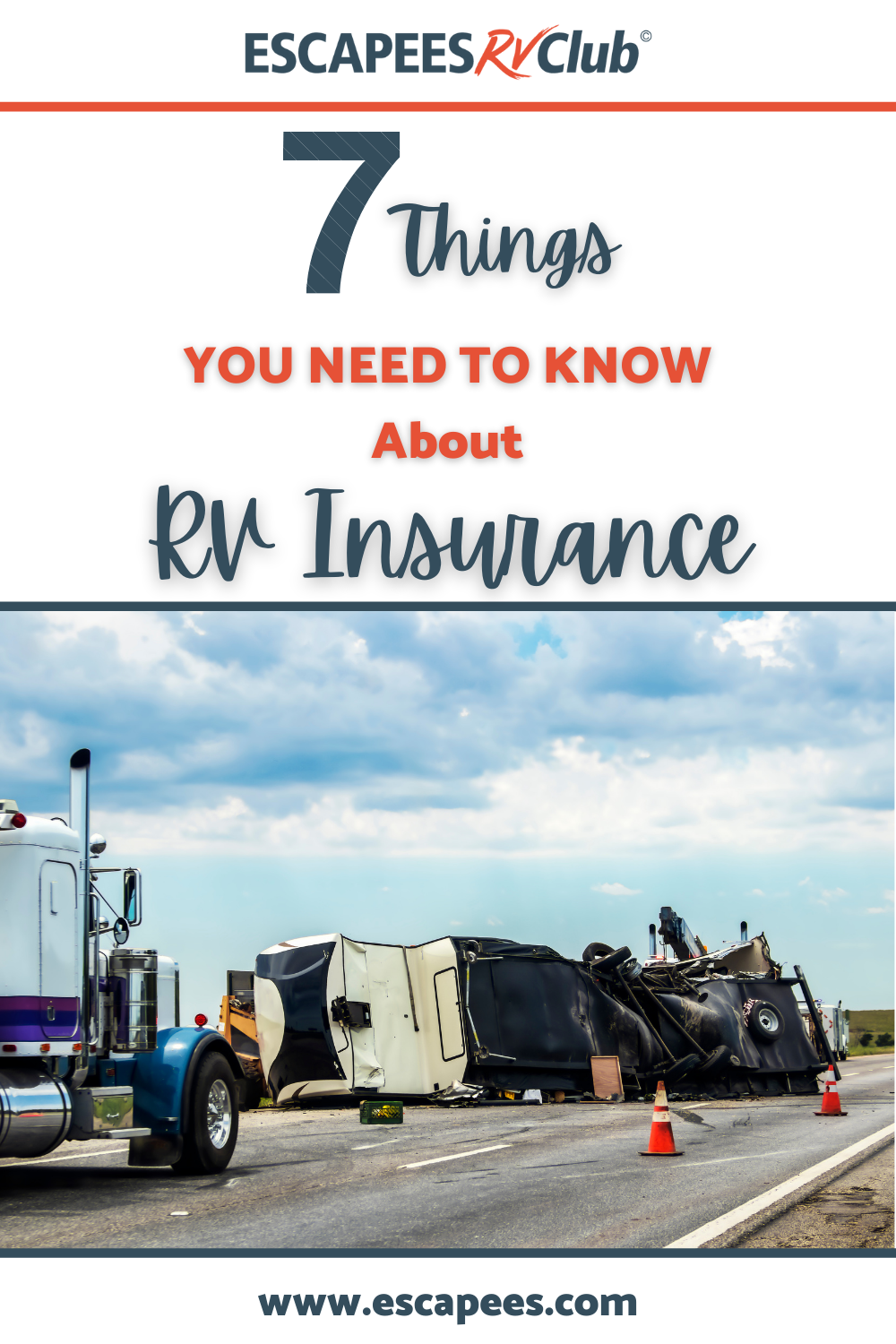

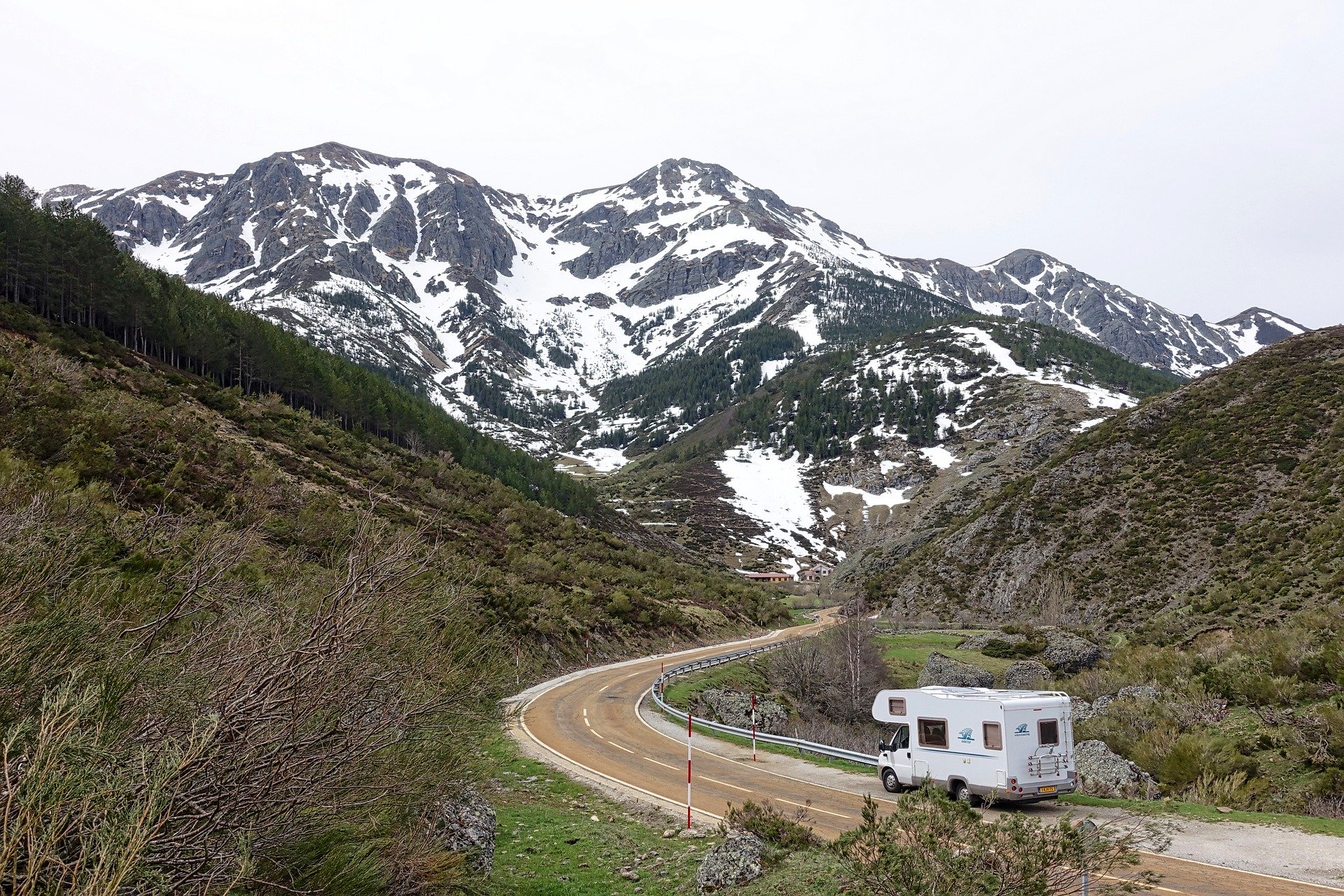
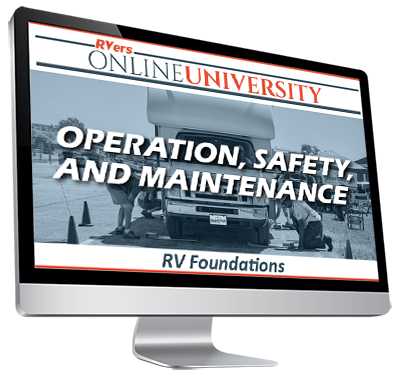



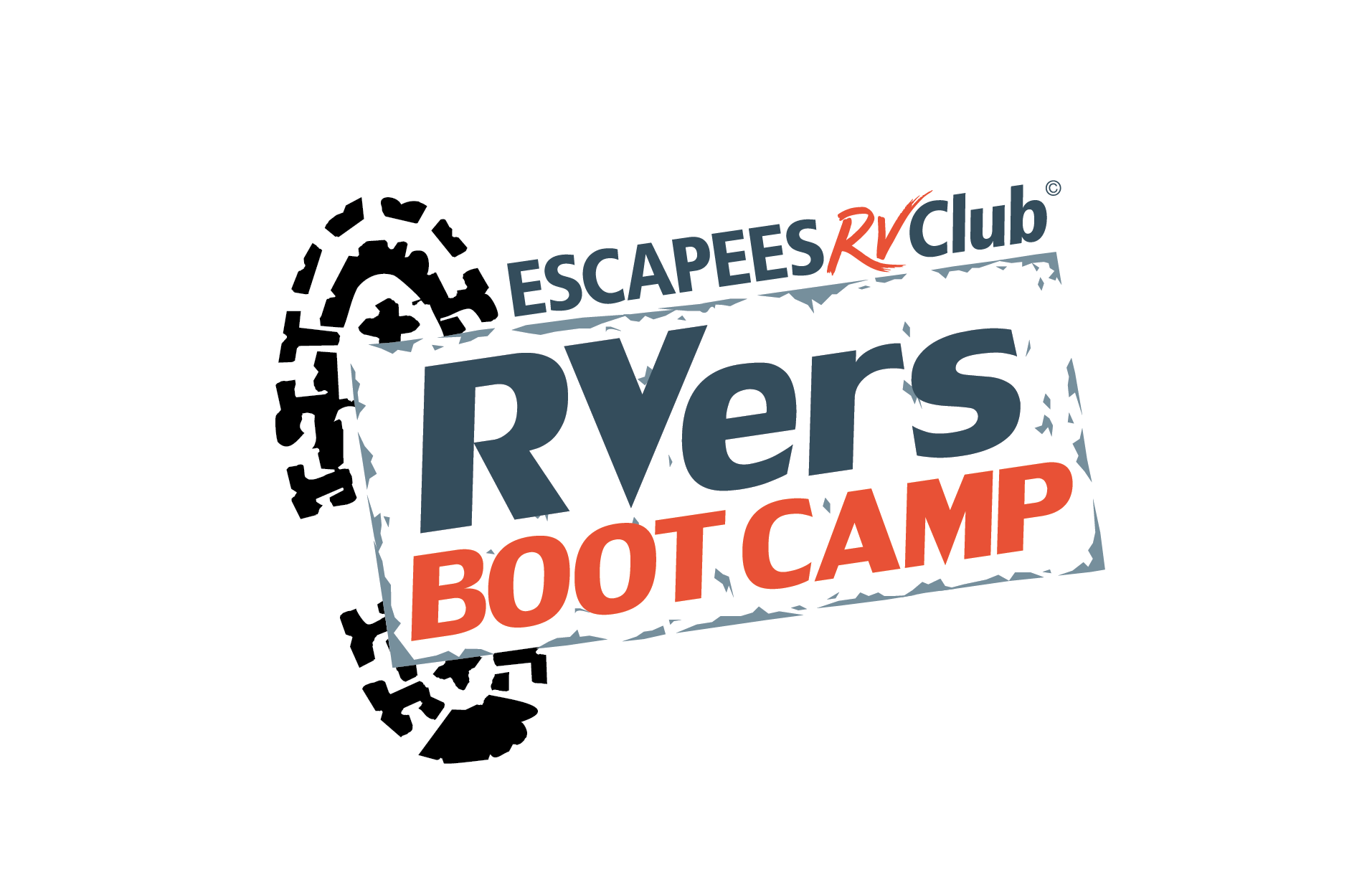


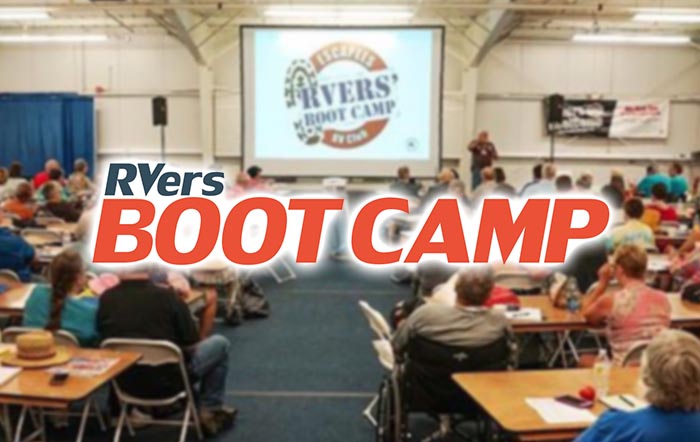
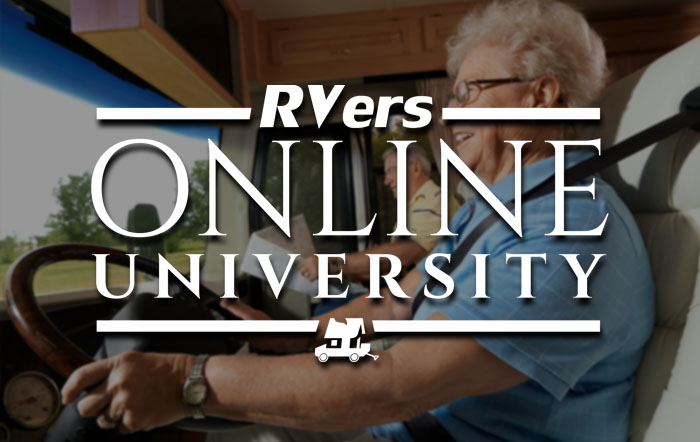

9 Responses
We are in process of selling our home and plan to travel in our RV for the next 2-3 years. We bought a 2017 Tiffin 40AH brand new and have added 6 180 watt solar panels and are installing 6 LifePo batteries. We would like to know our options.
Thank you
Hi there!
To learn about what options you have for RV insurance, we recommend you reach out to an insurance broker like FCIS. They will be able to take your information and find which companies offer the kind of coverage you want or need.
It’s a relief to know that there are RV insurance plan that can also cover the total loss of the vehicle. I’m thinking about being more open to the idea of going on long road trips in the future so that I can see more of the country as part of my bucket list. Maybe it would be best to start looking for RV insurance estimates starting next year.
I pay about $157.00 a month for my car insurance. I checked on RV insurance and was told it could be almo $400. a month with State Farm.
We are with State Farm and have RV (A Class) on its own policy and pay only $300 a year!
It’s nice that you pointed out how appropriate insurance coverage for the RV is so important and could be the difference between enjoying the lifestyle for years to come or having a single claim bring your adventures to an end. My father just bought a new RV, so now we are planning to have it insured. But before we could decide, we should probably check out all of the RV insurance options first.
Just sold our home and moved into our RV on our own property. We are planning to buy a class C motor home and travel for a couple years before building a home. We will use our RV on our property as a home base. What is the best type of insurance to cover us and what will it cost.?
I am a recent widow and would like to know what exactly I need as a part time used [7yr old] Class C model?
1. Not sure I would be pulling my car… or just drive my 24 Class C motorhome to get where I want to go…like to town or seeing things instead of my car.
2. Husband was the one who took care of the insurance for our permanent home and cars and I feel overwhelmed with all this stuff on my own now.
Hello Mary Ann, we are very sorry for your loss. Because you probably have so much on your plate right now, we suggest contacting an insurance company who is familiar with RVs, like FCIS. They can give you the information you need for your specific situation. We wish you safe travels!